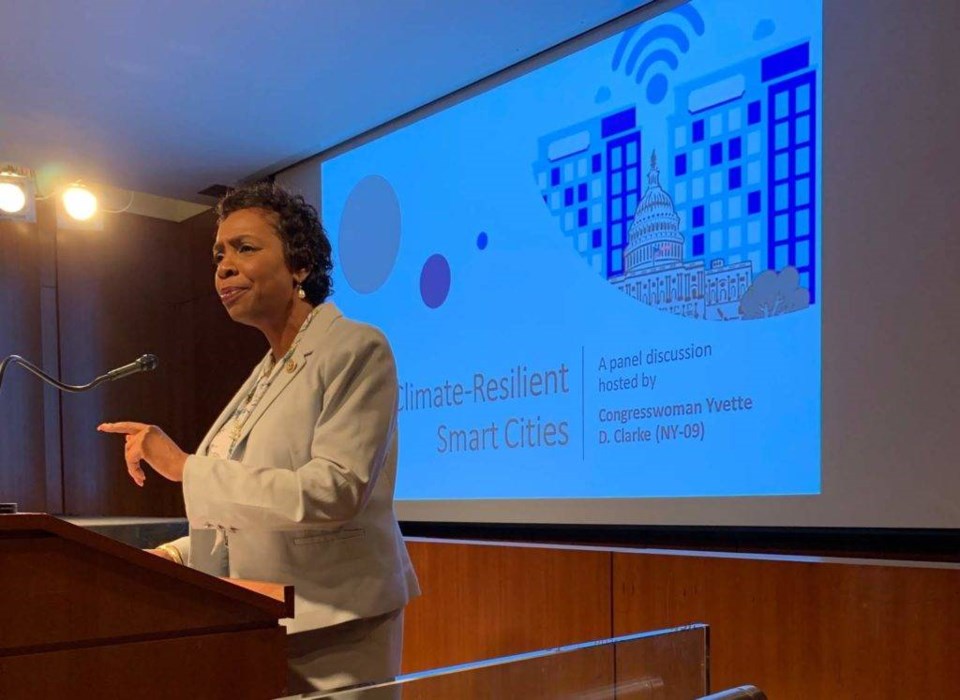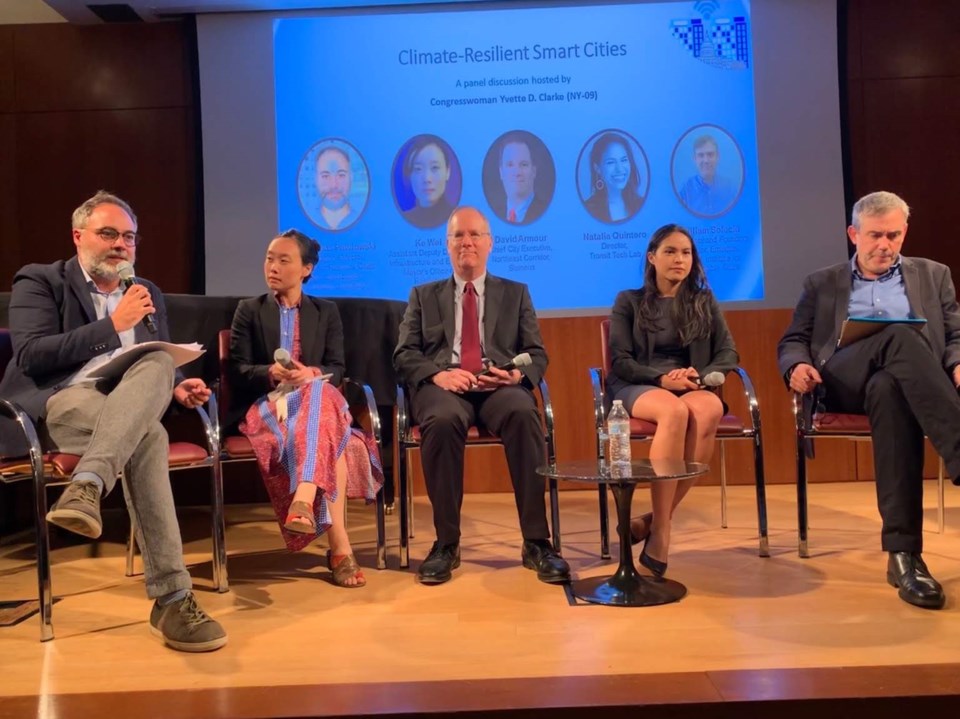Climate change is happening now and impacting Central Brooklynites today in very real ways— that was the premise of a town hall convened by Congresswoman Yvette D. Clarke Monday night at Brooklyn Public Library in Prospect Heights.
The congresswoman was joined by a panel of climate and environmental experts to discuss how Central Brooklyn could become more climate-resilient and sustainable.
Moderator Thaddeus Pawlowski, managing director of Columbia University's Center for Resilient Cities and Landscapes, welcomed Ke Wei, assistant deputy director with the NYC Mayor's Office of Resiliency and Sustainability; David Armour; chief city executive for Siemens; Natalia Quintero, program director at Transit Tech Lab; and Professor William Solecki from CUNY Institute for Sustainable Cities.
In their discussion, panelists stressed the need for immediate action: The detrimental impact of climate change is affecting communities in central Brooklyn and across the country today more than ever, they said.

Clarke cited several examples such as Superstorm Sandy, which flooded entire neighborhoods in Brooklyn and displaced thousands of families were displaced by Sandy, of whom many still have not returned to their homes. Or this summer, when Con Edison preemptively cut off power to thousands of Brooklynites for several days to reduce the city's energy load during a major heatwave.
"This summer alone, over 30.000 Brooklyn residents—many in my district—were left without power for multiple days when extreme heat caused our critical power equipment to fail, despite assurances from Con Edison that they were prepared," said Clarke. "We must change how we view climate change. We must plan in advance and build smart."
The panelists gave insights into the current energy and transportation needs of the city, but also made suggestions on how urban environments like New York City can become more sustainable. For instance, they laid out how industries should transition to build a greener, more sustainable economy and infrastructure and thereby create new, well-paying jobs.
Clarke, a co-sponsor of the Green New Deal, a massive policy package introduced by New York Congresswoman Alexandria Ocasio Cortez that would reshape the U.S. economy to eliminate all U.S. carbon emissions, emphasized her commitment to driving down greenhouse-gas emission to zero by 2050.
"My colleagues and I have just set the ambitious but necessary goal of achieving 'net-zero' greenhouse-gas emissions, nationwide, by the year 2050," said Clarke. "With this goal, we will transform every sector of our economy to a clean energy economy that creates jobs, not pollution."
"When you examine the fact, it is clear that climate change is the greatest existential threat we face, and that it is a crisis that requires bold action to transform every sector of our economy. Every person, company and government body has a role to play," Clarke concluded.




